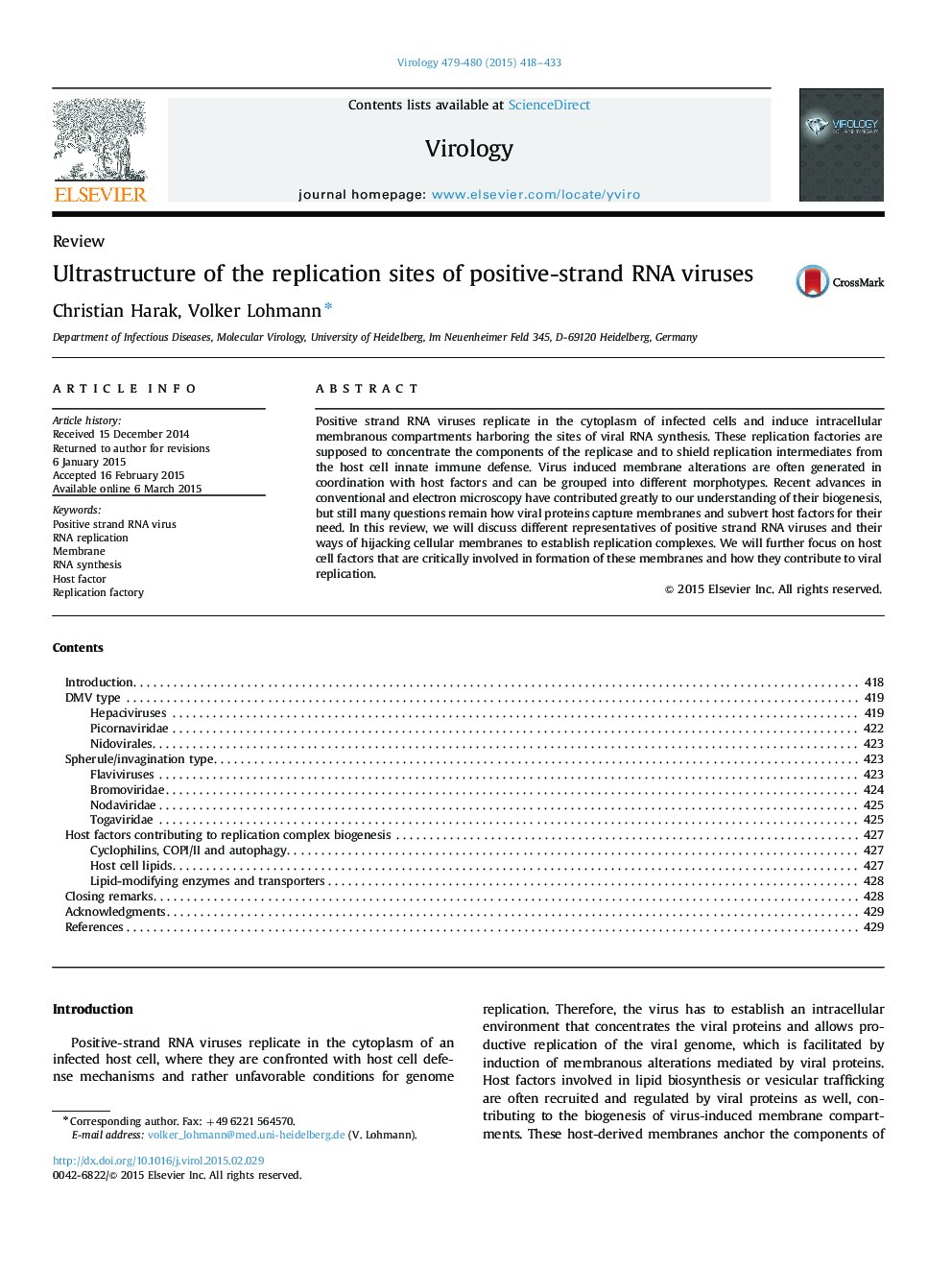| Article ID | Journal | Published Year | Pages | File Type |
|---|---|---|---|---|
| 6139213 | Virology | 2015 | 16 Pages |
â¢Positive strand RNA viruses induce massive membrane alterations.â¢Despite the great diversity, replication complexes share many similarities.â¢Host factors play a pivotal role in replication complex biogenesis.â¢Use of the same host factors by several viruses hints to similar functions.
Positive strand RNA viruses replicate in the cytoplasm of infected cells and induce intracellular membranous compartments harboring the sites of viral RNA synthesis. These replication factories are supposed to concentrate the components of the replicase and to shield replication intermediates from the host cell innate immune defense. Virus induced membrane alterations are often generated in coordination with host factors and can be grouped into different morphotypes. Recent advances in conventional and electron microscopy have contributed greatly to our understanding of their biogenesis, but still many questions remain how viral proteins capture membranes and subvert host factors for their need. In this review, we will discuss different representatives of positive strand RNA viruses and their ways of hijacking cellular membranes to establish replication complexes. We will further focus on host cell factors that are critically involved in formation of these membranes and how they contribute to viral replication.
